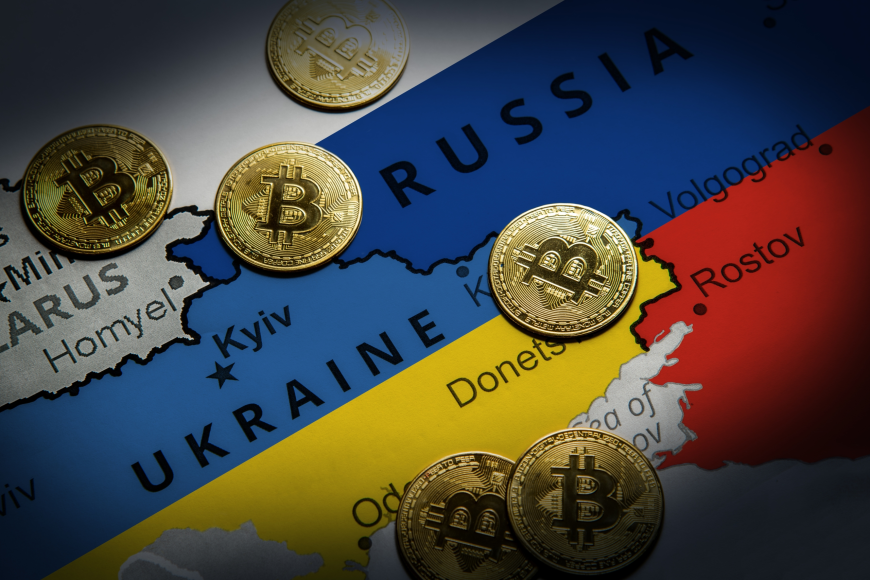Should Russians Be Removed from Transacting Crypto? A Deep Dive
Russia’s access to crypto has become a sanctions battleground. Supporters say restrictions are needed to enforce sanctions and stop illicit finance, while critics warn they unfairly punish ordinary people, are hard to enforce, and may push activity underground. The future likely brings tougher compliance rules, more offshore platforms, and ongoing debate over balancing enforcement with fairness

What Has Already Happened
-
EU Sanctions Against Russian Crypto Platforms
The EU has implemented sanction packages affecting crypto services. Examples include sanctions on exchanges such as Garantex (with wallets blocked by Tether, leading to suspension of operations). Blockchain.com notified Russian users about shutting down certain custodial services in line with EU sanctions. Some other platforms (e.g., LocalBitcoins and similar services) have also restricted or closed services to Russian nationals under EU rules.
-
Proposals Within Russia
Russian authorities and regulators have proposed limiting certain crypto activities domestically. The Bank of Russia has considered banning sales of mined crypto to Russian residents (effectively pushing miners to sell mainly to non-residents or through foreign infrastructure). Other suggestions include stricter domestic regulation to reduce sanctions exposure.
-
Resistance and Pushback
Major exchanges and industry leaders have pushed back against blanket national bans. Binance has argued against blocking all Russian users on the basis that ordinary citizens should not be punished for state actions. Coinbase's leadership has made similar statements advocating targeted blocks only for specifically sanctioned individuals or entities.
Arguments For Removing or Restricting Russian Participation
- Enforcement of Sanctions: Preventing access to financial services—crypto included—is seen as a way to cut off resources for aggression and make sanctions effective.
- Prevent Evasion and Illicit Use: Restricting access reduces the risk that persons or entities will use crypto for money laundering or to evade sanctions.
- Political & Ethical Signal: Exclusions send an international message of condemnation and can exert economic pressure beyond diplomacy or military measures.
Arguments Against Removing Russians from Crypto Transactions
- Due Process & Innocent Parties: Many crypto users are ordinary citizens with no link to state wrongdoing; blanket bans risk collective punishment and ethical/legal issues.
- Technical and Enforcement Challenges: Decentralization, pseudonymity, VPNs, and cross-border services make full enforcement difficult and prone to false positives.
- Potential Backfire: Bans could drive activity underground to opaque venues, making illicit flows harder to trace and harming civilians economically.
- Legal & Regulatory Risks for Platforms: Platforms face the dual problem of complying with sanctioning jurisdictions while avoiding overbroad blocks that invite legal challenges.
Notable Opinions & Examples
Binance and Coinbase leadership have argued that wholesale bans on nationals are unjust and counter to the ideals of financial freedom; they advocate targeted enforcement against sanctioned individuals and entities. Russian officials note the practical difficulty of preventing cross-border crypto flows entirely and stress that aggressive external restrictions may be imperfect.
What Would “Removal” Actually Look Like?
If implemented, a strict removal or restriction policy might include:
- Exchanges refusing service to users presenting Russian national IDs or logging in from Russian IP addresses.
- Blocking access from wallets that are attributed to sanctioned persons or entities.
- Disallowing fiat on/off ramps (rubles <> crypto) with Russian banks or financial institutions.
- Strong KYC measures to prove non-Russian status.
- Regulatory and financial penalties for platforms that fail to comply with imposed restrictions.
Ethical, Social, and Global Implications
- Human Rights & Fairness: Collective restrictions raise moral concerns about punishing citizens for their government's actions.
- Economic Effects: Restrictions could hamper livelihoods, remittances, and access to value stores for ordinary people.
- Precedent Risk: Nationality-based exclusions could be replicated against other countries, fragmenting the global crypto ecosystem.
- Privacy vs. Surveillance: Tighter KYC and wallet-attribution tools can erode personal privacy and increase surveillance.
What the Future Might Bring
- Expanded sanctions covering more crypto service types and more aggressive enforcement in some jurisdictions.
- Crypto platforms investing in stronger compliance, wallet attribution, and geo-blocking technologies.
- Growth of offshore or less-regulated venues filling gaps—likely with lower transparency and higher risk.
- Russia implementing internal policies to enable domestic crypto use or to facilitate cross-border trade outside sanctioning jurisdictions.
Conclusion
There is no easy answer. Restricting Russian participation in crypto could strengthen sanctions and reduce illicit finance, but it risks unfairly harming ordinary people, driving activity to opaque venues, and creating legal and ethical complications. Policymakers and platforms face the difficult task of balancing enforcement and accountability with due process, privacy, and minimizing harm to civilians.





















